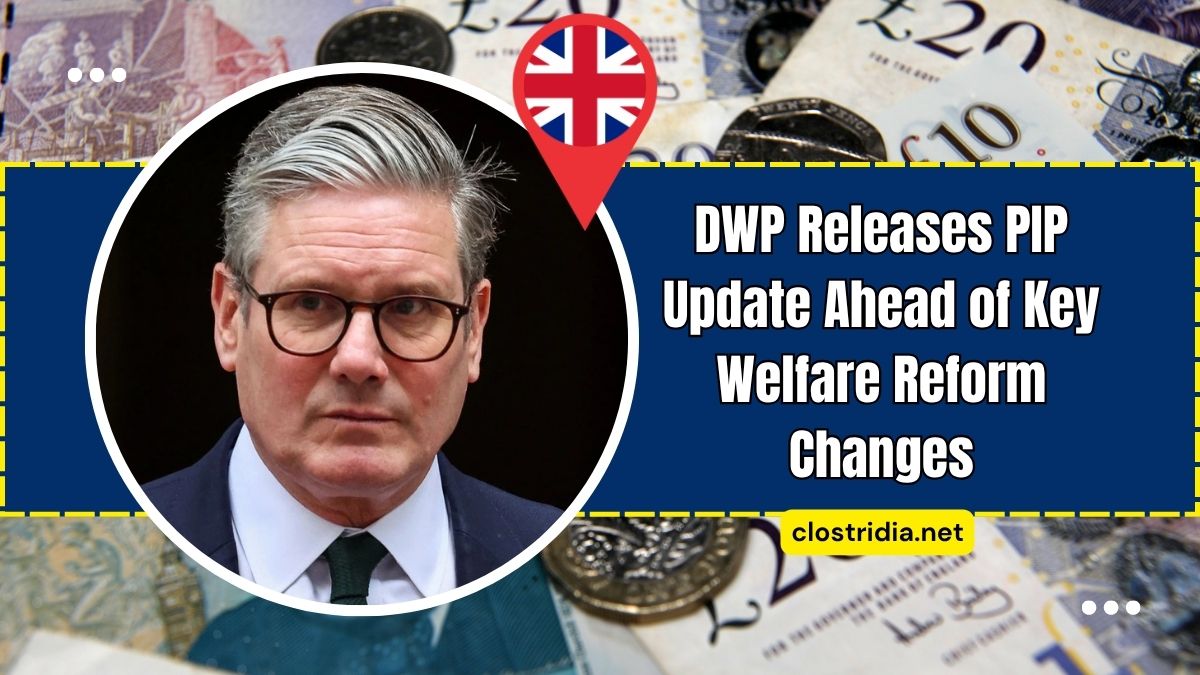The Department for Work and Pensions (DWP) has recently shared an update regarding the number of individuals claiming Personal Independence Payment (PIP) as the government prepares to implement significant welfare reforms next year.
This data highlights the continued rise in PIP claimants, especially among younger people.
Record Number of PIP Claimants
The DWP‘s latest figures, published on June 17, 2025, reveal that as of April 2025, over 3.7 million people in England and Wales were claiming PIP, a notable increase from the 3.69 million recorded in January.
This marks an upward shift of 200,000 claimants compared to the previous year, and from just 2.05 million in 2019 when the data collection began.
Growing Proportion of Teenagers and Young Adults
A significant trend in the data is the increase in the number of younger claimants. In April 2025, 16.5% of all PIP claimants were teenagers and young adults (ages 16-19), up from 14.6% in 2019.
Similarly, the 30-44 age group has seen an increase, representing 21.0% of claimants in April 2025, up from 18.9% in 2019. Conversely, the proportion of claimants in the 45-59 age group has decreased, falling from 37.2% in 2019 to 29.9% in April 2025.
Age Demographics Shift
For older claimants, the percentage of those aged 60-74 has slightly risen, from 29.3% to 30.8%. These shifts in demographics are reflective of changing needs and the growing demand for support across various age groups.
Labour’s Proposed Changes and Backlash
In March 2025, the Labour Party announced a major overhaul of the PIP system. The proposed reforms aim to tighten eligibility criteria in an effort to reduce welfare expenditure.
Labour’s plan includes a proposal requiring claimants to score at least four points in one daily living activity to qualify for part of the benefit. This change is expected to save around £5 billion annually.
Despite this, the government has faced criticism, with numerous MPs within Labour expressing concern over the proposed cuts. Some have called for the government to pause and reassess the planned changes.
Prime Minister Sir Keir Starmer, however, has insisted that reforms are necessary, emphasizing that the current system is inadequate for both recipients and taxpayers.
Government Concessions
In response to the backlash, Work and Pensions Secretary Liz Kendall agreed to include protections in the Welfare Reform Bill.
One key concession guarantees that individuals who no longer qualify for PIP will continue to receive the payments for 13 weeks, instead of the originally proposed four weeks. While this change has been seen as a compromise, some MPs believe it does not go far enough.
The Impact of Reforms
The government’s push for reform is primarily motivated by concerns over the increasing number of new PIP awards—currently, about 1,000 new PIP awards are being made each day.
Kendall referred to this as the equivalent of adding a city the size of Leicester every year. The government argues that the current rate of claims is unsustainable and unfair to both taxpayers and those who genuinely need support.
The proposed changes are expected to significantly impact 800,000 individuals, potentially reducing their benefits. However, despite the growing resistance, Prime Minister Starmer has remained resolute in his stance on the need for reform.
As the DWP announces a record number of PIP claimants, the government faces increasing pressure to address the rising cost of welfare spending.
While the Labour Party’s proposed reforms aim to curb expenses, the changes have sparked significant controversy, with concerns over the fairness and impact on vulnerable populations.
FAQs
What is Personal Independence Payment (PIP)?
PIP is a benefit designed to help with extra living costs for individuals who have long-term physical or mental health conditions or disabilities that impact their ability to carry out everyday tasks or get around.
Why is the government reforming the PIP system?
The government is seeking to reduce welfare spending and make the PIP system more sustainable, while still providing support to those who need it most.
How will the proposed PIP reforms affect claimants?
The reforms could lead to reduced benefits for around 800,000 individuals, particularly if they no longer meet the tightened eligibility criteria.

